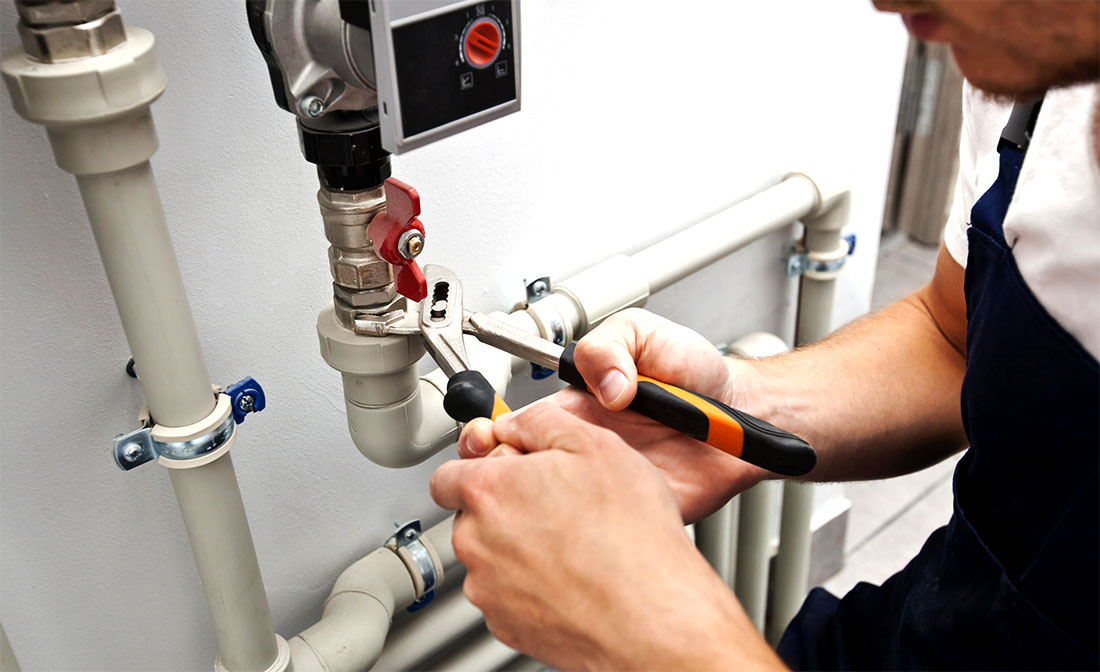
Best Ways To Prevent Future Leaks In Your Hot Water System
It’s easy to take your hot water for granted, until you experience leaks in your hot water system. You can let it run for years on end with no maintenance, and it is out of sight, out of mind. The only time you notice it is when something goes wrong.
To maximise energy efficiency and extend your water heater’s lifespan, carry out periodic maintenance just like you would for other appliances. Water heaters that are neglected may keep the hot water flowing for a few years, but eventually, they will generate higher utility bills and ultimately fail.

There are several things you can do at home to help prevent leaks from occurring. But, of course, prevention is always better than the cure, so make sure regularly inspecting your hot water system becomes part of your home maintenance schedule.
What Causes Leaks In Your Hot Water System?
Understanding the causes of leaks can help in preventing them. These are the primary causes of leaks in your hot water systems to look out for:
Age
Most parts of a hot water system will wear out with age. The water heater may become rusty and develop holes as a result. Eventually, that can result in leaks.
Your Temperature And Pressure Relief Valve Has Failed
A wrongly adjusted valve causes the tank’s pressure to rise dramatically, potentially resulting in a leak. Therefore, it is essential to regularly check the valve to see if it needs to be tightened if it has become loose.
Cracks in the tank
The hot water system develops pressure because warm water creates steam and fills the empty tank space. Due to the pressure created by the steam filling the tank, cracks appear in the heater’s tank, leading to leaks in your hot water system.
Sediment forming in the tank
Sediments accumulate at the bottom of hot water tanks as systems age. Sediment buildup inside the tank can cause cracks to form.
Why You Should Inspect Your Water Heater Regularly
Periodically checking your water heater is an essential home maintenance step that is often overlooked. Water heaters typically last between eight and thirteen years, and if your water heater is over ten years old, you should inspect it at least annually.
Inspections can help identify problems before they become more significant. The sooner you take care of leaks, rust, and other problems, the better.
An over-pressurised tank could explode if a valve malfunctions. So first, check your hot water pressure valve by turning off your hot water unit and your water supply and tripping the valve. If no air, water, or vapour comes out, the valve needs to be replaced.
If you notice any cracks, rust or other issues with your water heater, contact a licenced plumber to have it repaired or replaced.
Periodically Inspect The Anode Rod
Water heaters are protected against corrosion and rust by anode rods. Anode rods can last anywhere from a few years to the life of your water heater, depending on the chemical make-up.
When the tank has been drained of all water, you can pull out the rod while the hex head is unscrewed at the top of the tank. Replacement is required when the rod has become worn or if it’s covered in sediment. The anode rod typically lasts five years, but it’s best to check on them once a year.
Anodes will be located on the top side of the device. Occasionally, it may be directly connected to the heater’s hot water outlet line.
Regularly Flushing Out The Tank Can Prevent Leaks In Your Hot Water System
Having a large holding tank in your water heater ensures that you have enough hot water whenever you need it. However, water that sits in the tank continuously over time can clog the bottom of the tank with naturally occurring minerals and grit from council water lines.
Having sediment build up in your hot water tank can potentially make it difficult for it to function. In this case, your water heater may develop leaks or fail sooner than expected.
A licensed plumber should flush your hot water tank if you haven’t done it in several years as you may activate leaks.
What should I do if my hot water tank is leaking?
It is essential to contact a licenced plumber immediately, do not try and repair the fault yourself or risk injury.
As a precautionary measure, you might want to turn off your water at the mains. This will ensure that your property is not further damaged until the plumber arrives.
It may be possible to repair a water heater depending on the severity and cause of the leak. However, a replacement can sometimes be the best option or the only solution.
Contact the team at All Day Plumbing for reputable and reliable hot water system repairs and replacement anywhere in Sydney. We are licenced and insured for your protection and will ensure you can enjoy a hot shower that same evening. If you spot even the most minor leaks on your hot water system, call us on 1300 301 354.